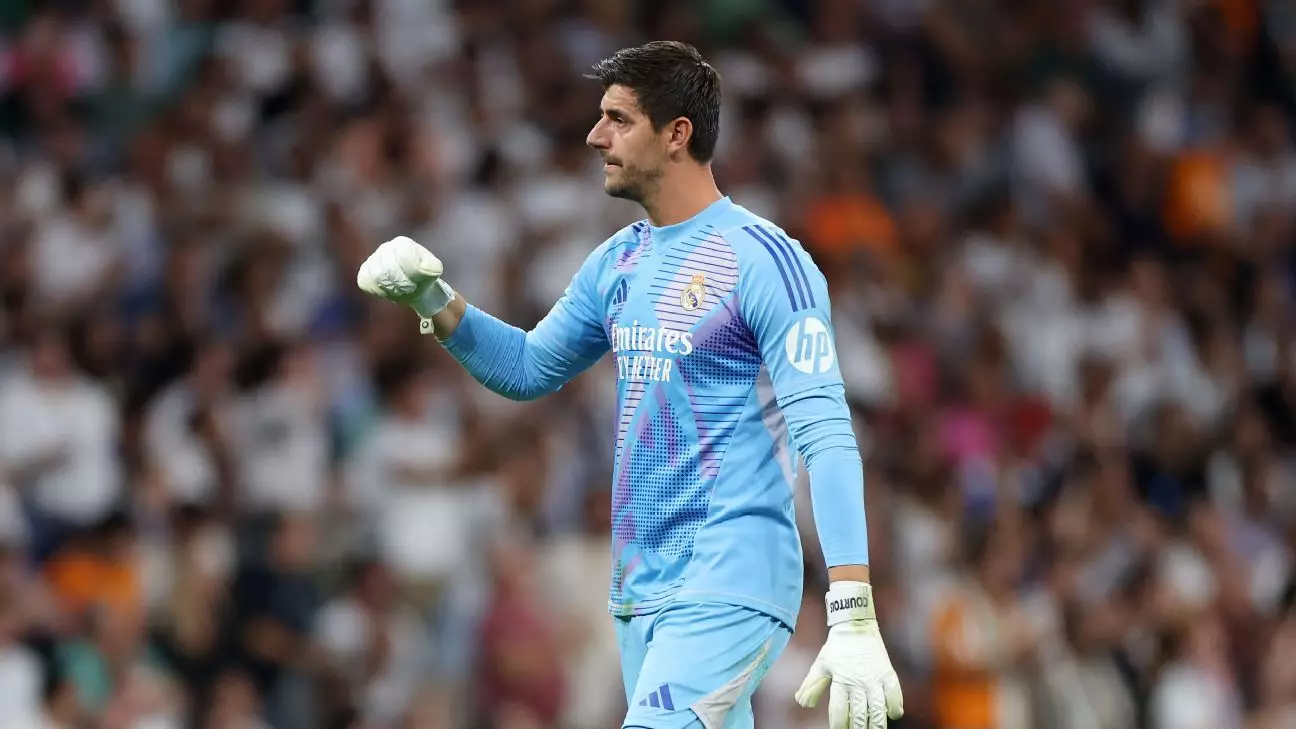In recent discussions within the football community, the issue of fixture congestion has gained significant traction, with players voicing their concerns about the overwhelming number of matches scheduled in a season. Thibaut Courtois, the Real Madrid goalkeeper, has thrown his support behind fellow player Rodri’s serious warnings about potential strike actions should the relentless fixture list continue. Rodri, speaking candidly during a press conference, emphasized the sentiment shared among players regarding the increasing pressure of their match commitments. His remarks highlighted that a breaking point could be near if a solution to this quandary is not addressed promptly.
This concern is hardly limited to just a few players; it echoes throughout the entirety of professional football. As teams participate in various competitions, including UEFA’s revamped Champions League and FIFA’s new Club World Cup, players are facing the bleak prospect of exhausting season schedules totaling over 70 games. This spike in games raises alarming questions about the sustainability of such a rigorous routine for athletes whose performance hinges on physical and mental fitness.
The ongoing debate often positions financial gain against player welfare. Critics argue that top-level footballers earn substantial salaries and should, therefore, just manage the extensive match catalog. However, beyond monetary compensation lies a critical issue: the risk of injury and the resultant dip in performance levels. Courtois emphasizes that the allure of an exciting football spectacle should not overshadow the fundamental need for balance in scheduling. The increasing frequency of matches inevitably amplifies the injury risk, jeopardizing not just individual careers but the overall quality of the sport.
This sentiment was echoed in Courtois’s remarks during a conversation with popular streamer Ibai Llanos, where he succinctly pointed out that overloading the players is counterproductive. As matches multiply, the likelihood of fatigue-related injuries escalates, further jeopardizing not only club teams but also national squads preparing for international fixtures like the Nations League.
Spotlight on Team Dynamics and Future Prospects
Adding yet another layer of complexity to the situation is the individual interplay within teams. Real Madrid, while enjoying recent success in their Champions League opening match, is grappling with internal dynamics concerning star players. The arrival of Kylian Mbappé has caused a stir, leading to speculations regarding the role of existing forwards like Rodrygo, who despite his contributions, has been relegated in media discussions about quintessential players. This slight can affect squad morale and the cohesion of the team, especially if some players feel undervalued or sidelined in favor of newer additions.
Courtois defended Rodrygo, a player often overshadowed by bigger names, indicating that the locker room atmosphere recognizes and appreciates each member’s contribution, irrespective of public perception. The media’s fascination with star power can sometimes obscure the vital roles other players fulfill, which may inadvertently create friction within team dynamics.
As discussions around potential strikes emerge, a broader conversation about reforming match scheduling has been ignited. The collective voice of footballers like Courtois and Rodri signals a crucial moment in the sport’s history. Indeed, if players collectively unify their stance, it could lead to palpable changes in how fixtures are arranged, ensuring their health and performance are prioritized.
As the landscape of professional football evolves, it is imperative for governing bodies to listen to the concerns of players and coaches alike. Only through recalibrating the balance between entertainment, income, and athlete well-being can football sustain its growth without compromising the integrity of the very game players and fans cherish.

Leave a Reply